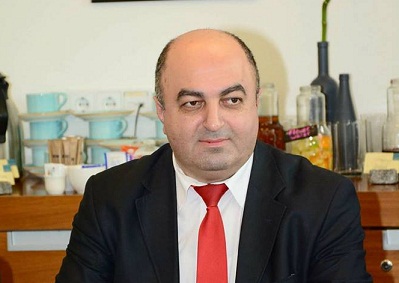The Public Defender of Georgia echoes the criminal case against Deacon Giorgi Mamaladze and calls on the Prosecutor's Office and state officials to respect the presumption of innocence and the principle of equality of arms in the criminal proceedings.
According to the public statement of the Prosecutor's Office, the defendant was going to murder a high-ranking cleric. The detention of the Deacon was echoed by the Members of Parliament, the Prime Minister, the Minister of Energy, the Minister of Justice and other high officials. They praised the efforts of the investigative bodies and noted that the Patriarch’s health and life was no longer in danger as a result of the arrest of the Deacon and that the Patriarch was protected by the state. Obviously, similar statements referred to the Patriarch as an addressee of the alleged crime.
The Public Defender met and talked with defendant Giorgi Mamaladze in prison N6 on February 14, 2017. During the meeting it was revealed that Giorgi Mamaladze’s indictment did not indicate the preparation of a murder of a cleric. In addition, during the meeting with the Public Defender, the defendant described the charges filed against him as absurd. According to the Constitution of Georgia, a person is considered innocent until found guilty by the final verdict of the court. During the investigation, public officials have a special obligation to refrain from making any statement, which can form public opinion about the culpability of a defendant in advance. The Public Defender realizes the high public interest towards the case and calls on the officials to refrain from making affirmative statements about the culpability of the defendant.
The Public Defender also notes that Giorgi Mamaladze’s presumption of innocence was violated from the very beginning when the Prosecutor's Office released a public statement. The Prosecutor's Office indicated in the affirmative form that Giorgi Mamaladze committed a crime, namely, he "illegally bought a improvised firearm and kept it in his house".
The Public Defender also wants to respond to the obligation imposed by the Prosecutor's Office on the defense, i.e. not to disclose case materials publicly. The Public Defender notes that the use of such a measure is in line with the law when its necessity is conditioned by the interests of the investigation. It is noteworthy that the substantial data concerning Giorgi Mamaladze’s indictment was released by the Prosecutor's Office itself. Accordingly, the obligation not to disclose information, in this case, may be aimed at putting the defense in a disadvantageous situation. The Public Defender calls on the Prosecutor's Office to disseminate information about why such an obligation was imposed on the defense, as well as to lift it when there will not be urgent need for it any more, in order to observe the principle of equality.
Original
News
December 13, 2023
Ethnic minorities outside the peace dialogue
November 6, 2023
‘Peace’ agenda of political parties
Popular
Articles
February 13, 2024




